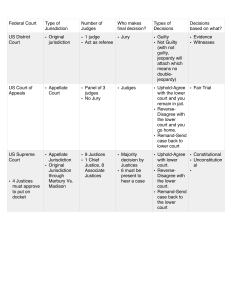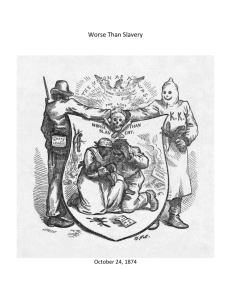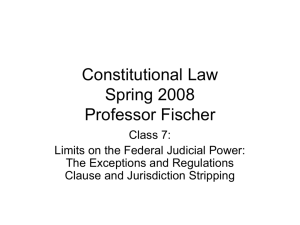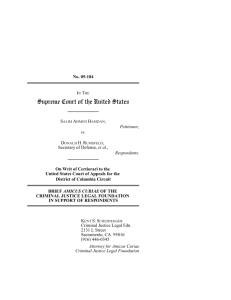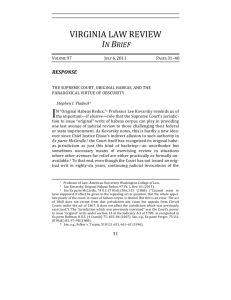Ex parte McCardle
advertisement
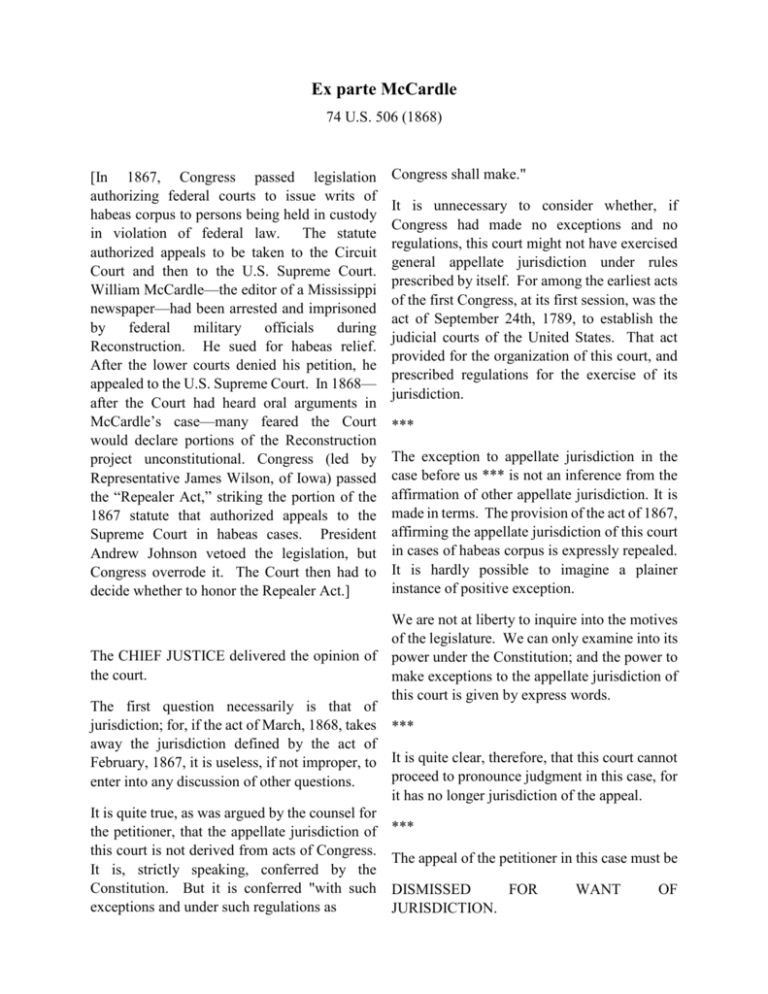
Ex parte McCardle 74 U.S. 506 (1868) [In 1867, Congress passed legislation authorizing federal courts to issue writs of habeas corpus to persons being held in custody in violation of federal law. The statute authorized appeals to be taken to the Circuit Court and then to the U.S. Supreme Court. William McCardle—the editor of a Mississippi newspaper—had been arrested and imprisoned by federal military officials during Reconstruction. He sued for habeas relief. After the lower courts denied his petition, he appealed to the U.S. Supreme Court. In 1868— after the Court had heard oral arguments in McCardle’s case—many feared the Court would declare portions of the Reconstruction project unconstitutional. Congress (led by Representative James Wilson, of Iowa) passed the “Repealer Act,” striking the portion of the 1867 statute that authorized appeals to the Supreme Court in habeas cases. President Andrew Johnson vetoed the legislation, but Congress overrode it. The Court then had to decide whether to honor the Repealer Act.] Congress shall make." It is unnecessary to consider whether, if Congress had made no exceptions and no regulations, this court might not have exercised general appellate jurisdiction under rules prescribed by itself. For among the earliest acts of the first Congress, at its first session, was the act of September 24th, 1789, to establish the judicial courts of the United States. That act provided for the organization of this court, and prescribed regulations for the exercise of its jurisdiction. *** The exception to appellate jurisdiction in the case before us *** is not an inference from the affirmation of other appellate jurisdiction. It is made in terms. The provision of the act of 1867, affirming the appellate jurisdiction of this court in cases of habeas corpus is expressly repealed. It is hardly possible to imagine a plainer instance of positive exception. We are not at liberty to inquire into the motives of the legislature. We can only examine into its The CHIEF JUSTICE delivered the opinion of power under the Constitution; and the power to the court. make exceptions to the appellate jurisdiction of this court is given by express words. The first question necessarily is that of jurisdiction; for, if the act of March, 1868, takes *** away the jurisdiction defined by the act of February, 1867, it is useless, if not improper, to It is quite clear, therefore, that this court cannot proceed to pronounce judgment in this case, for enter into any discussion of other questions. it has no longer jurisdiction of the appeal. It is quite true, as was argued by the counsel for the petitioner, that the appellate jurisdiction of *** this court is not derived from acts of Congress. The appeal of the petitioner in this case must be It is, strictly speaking, conferred by the Constitution. But it is conferred "with such DISMISSED FOR WANT OF exceptions and under such regulations as JURISDICTION.

